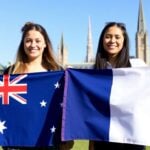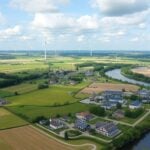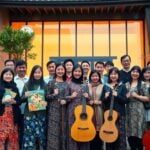The Kellogg Institute for International Studies is now accepting applications for its prestigious Postdoctoral Visiting Fellowships. This opportunity is designed for early-career scholars specializing in global democracy, offering a chance to advance their research in a dynamic academic setting. The fellowship provides a supportive environment for scholarly growth and collaboration.
Fellowship Overview
The Postdoctoral Visiting Fellowships at the Kellogg Institute are aimed at recent PhD graduates eager to deepen their research on global democracy. Fellows become part of a vibrant community, gaining access to dedicated time, essential resources, and opportunities to connect with leading faculty and international peers. The program fosters professional development and collaborative research.
Key Takeaways
- Focus: Research on global democracy.
- Eligibility: Early-career scholars with a PhD awarded within the last three years.
- Benefits: Competitive stipend, travel expenses, research funding, and medical insurance.
- Duration: Typically one academic year, with potential for renewal.
- Requirements: Full-time residency, active participation in institute activities, and publication of research.
What the Fellowship Entails
Selected fellows will receive a competitive stipend, coverage for round-trip travel, funding for research activities, and medical insurance. The fellowship usually spans one academic year, with the possibility of an extension based on performance and mutual interest. Fellows are expected to be in residence throughout the fellowship period, with extended absences requiring prior approval. A key expectation is active engagement with the Kellogg Institute’s academic life, including presenting research, participating in seminars, and contributing to events.
Eligibility and Application Details
To be eligible, applicants must have obtained their PhD within three years prior to the fellowship’s commencement and their research must be related to global democracy. While the program welcomes scholars from all countries, graduates from the University of Notre Dame’s PhD programs are not eligible. Although social sciences PhDs are most commonly selected, exceptional candidates from other disciplines may be considered. Non-U.S. citizens must demonstrate strong English proficiency and possess a valid passport to secure a J-1 visa. It is important to note a U.S. immigration rule requiring a 24-month stay outside the U.S. after completing a J-1 Professor or Research Scholar program, unless transitioning immediately into another qualifying appointment.
The application process requires several components: a cover letter expressing interest and preferred dates, a curriculum vitae, a detailed research project statement (6-10 pages), a short abstract (150 words), a brief biography (200-300 words), and three confidential letters of recommendation submitted via Interfolio. Applicants must also complete the Visiting Fellowship Application Form and the Institutional Required Information Form through the online system. The deadline for applications is October 1, 2025.


























